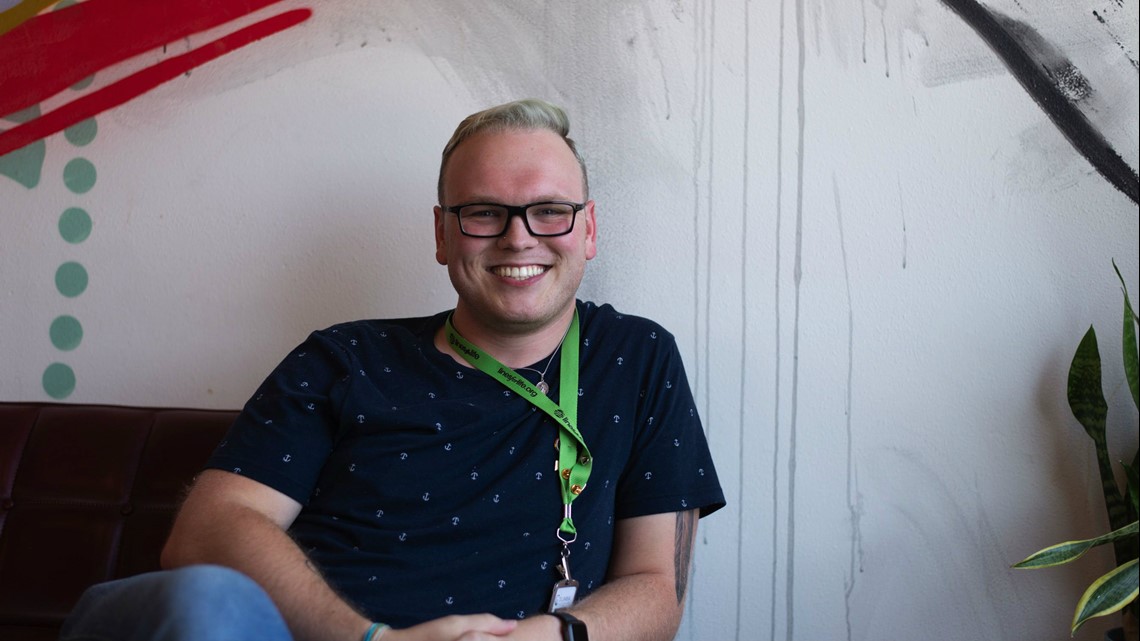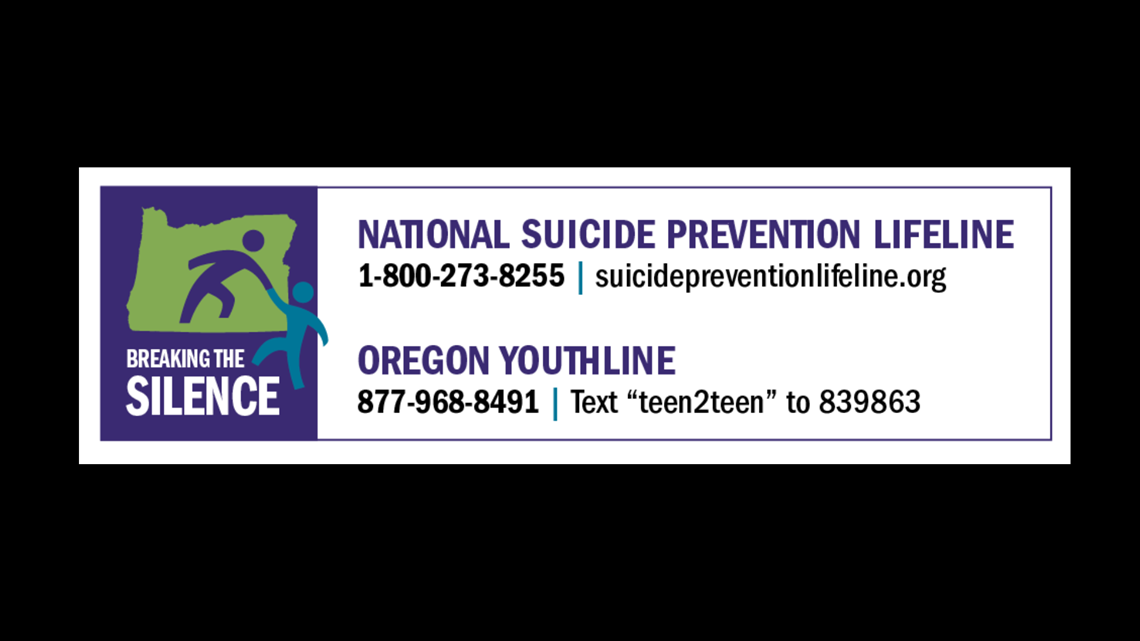Editor's note: The video above is a conversation about the 'Breaking The Silence' initiative that several newsrooms across the region collaborated on earlier this year. See below for more on the program.
ST. HELENS, Ore. -- As the suicide prevention coordinator for Columbia Health Services, Weston Perkins-Clark is working to gather community members to share their ideas on what resources are needed to reduce the risk of suicides.
Perkins-Clark, who leads a Suicide Prevention Task Force, held his first monthly training in August explaining a tactic known as QPR (“Question, Persuade, Refer”).
In QPR trainings, Perkins-Clark discusses the warning signs that someone may be considering suicide, and the questions that people can ask when they believe someone is at risk. With QPR, people try to persuade the person at risk to not harm themselves, reassure them that they are not alone and refer them to resources.
“The key is to know that there are always signs there, it’s just being prepared for them,” he said. “That’s what that training and others like it are all about: making sure that we as regular, everyday people have the power to recognize when someone is in need of help and can step in and help them. We don’t need a list of certifications behind our name to be able to help somebody.”


The first QPR training was held in St. Helens, with another training slated for Clatskanie.
“The plan with that is to do one a month, minimum, and rotate throughout the county,” Perkins-Clark explained. Community groups and businesses can also request QPR trainings, whichlast 60 to 90 minutes, but can run longer and more in-depth when requested.
Perkins-Clark joined Columbia Health Services, a countywide nonprofit, in January, moving here from North Dakota, where he was working on his master’s degree in public health.
As a relative newcomer, Perkins-Clark said he wants to defer to the long-time residents who know the community best. The task force “is an open forum, basically for people to come and talk about what the community needs... and to make a difference in any way that they feel they can,” he explained.
Participants include people who work in education, healthcare or other social services, as well as community members who come simply because they care about the issue.
One of the major themes that has come up in task force meetings is the need for more support for families affected by suicide.
“What I expected to just be a quick conversation ended up taking over the entire meeting and highlighting this extreme need for family supports that I was not aware of, because no one had talked about it in the time that I had been here,” Perkins-Clark said.
Those interested in participating in the task force or receiving QPR training can contact Perkins-Clark at wperkins-clark@columbia-health.org.
Breaking the Silence
This month, newsrooms across the state are highlighting the public health crisis of death by suicide. Our goal of “Breaking the Silence” is to not only put a spotlight on a problem that claimed the lives of more than 800 Oregonians last year, but also examine research into how prevention can and does work and offer our readers, listeners and viewers resources to help if they – or those they know – are in crisis.
More than 40 newsrooms contributed stories when the project first launched in April. This September media outlets are producing new stories in recognition of National Suicide Prevention Month. When possible, we will promote each other’s stories, and all of them can be found on breakingthesilenceor.com.



